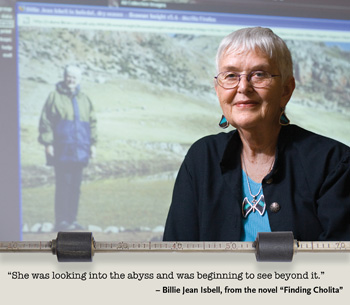COVER STORY
Why creative writing is a force on campus: Maintaining a balance between 'the mind and the heart' through storytelling
(Page 5 of 7)
"Writing, in a way, is the discipline that rolls all the other disciplines into one," he says. "There are novels about scientists and novels about businessmen. And poems about plants, animals and physics. The raw materials of study all go into writing. We channel all of the interests of Cornell."
The mind and the heart
According to the June 8 issue of The New Yorker, 822 MFA programs unleash would-be Junot Díazes from U.S. colleges each year. Thirty-seven award creative writing Ph.D.s. One of the oldest American creative writing programs, Cornell's program celebrated its 105th anniversary in 2008. That longevity "suggests something important about creative writing and the humanities: that there needs to be a balance between the arts and the hard sciences, the mind and the heart," says McClane. "The whole person needs to be taken into account. Creative writing helps people keep that balance. It keeps people sane."
At Cornell, the creative writing faculty teaches mostly undergraduates. Eight poets and eight fiction writers, chosen from hundreds of applicants, comprise the entire Master of Fine Arts program. Introductory creative writing classes -- some offering a dozen sections and taught by recent MFAs -- enroll hundreds of students.
Undergraduates vie for openings, according to English honors student Helen Havlak '11, who recently took an introductory creative writing course. Her first assignment: a personal essay. "You have this giant mix of people, who are not writing or English majors," Havlak says. "Because we wrote about subjects that are really important to us, even if the writing wasn't strong you still had to give people your respect and attention because they were pouring their hearts out."
Not with the program
Cornell is home to dozens of writers with no connection to the MFA program. These include faculty members in the sciences as well as the humanities, such as English professor Jonathan Monroe, a poet, and classics professor Fred Ahl, a poet and acclaimed translator of Greek and Latin epic poetry. Physicist Paul McEuen will publish his first mystery novel next year. Near Eastern studies associate professor Shawkat Toorawa has published poems in Creole, English and French and a short story in English.
Magnus Fiskesjö, assistant professor of anthropology, had his class write about the U.S.-Mexico barrier -- as fiction. Some students wrote excellent papers, he says, for example deploying the perspective of a bird or an animal.

